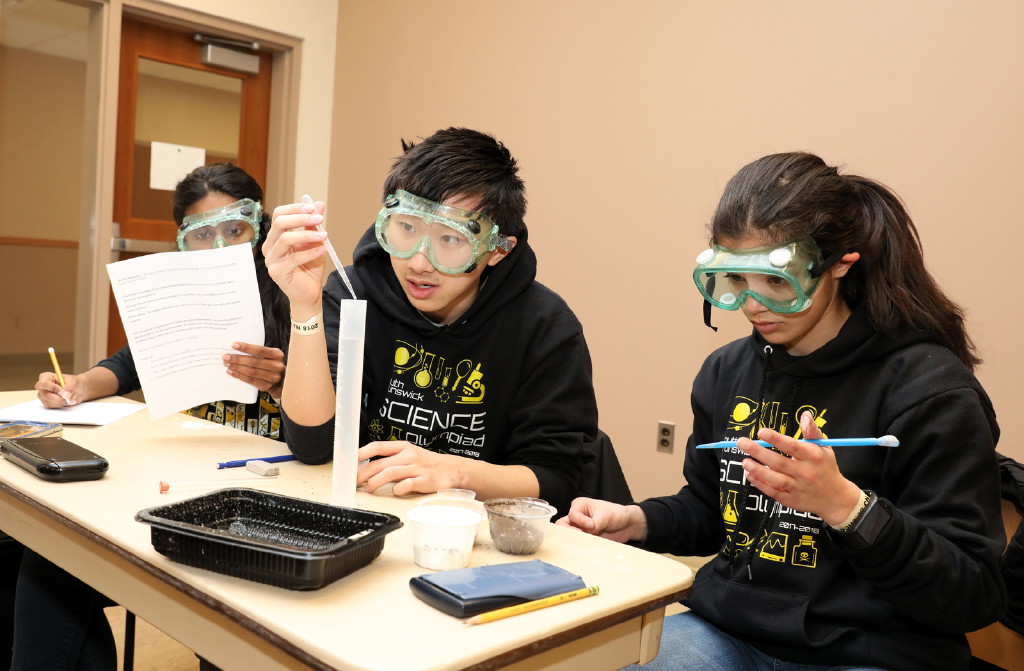METUCHEN — With 80 percent of careers growing in the fields of science, technology, engineering and mathematics (STEM), school officials are moving forward with an eight-year STEM action program to provide a path for students in the district.
Richard Cohen, assistant superintendent and principal at Moss School, presented the STEM action program, which is one of the goals of the district, at a Board of Education meeting on July 17.
He said the district researched STEM programs in school districts in Vernon, Chatham and Florida.
Currently, Cohen said the district provides students from kindergarten through high school with STEM projects.
Kindergartners plant a butterfly garden and problem solve the life of a monarch butterfly; first-graders build terrariums to study insects; second-graders design, build and test apple baskets and sailboats; third-graders design a weather shelter from recycled materials; fourth-graders develop safe locations to build houses; fifth-graders build and design a car and Rube Goldberg devices; sixth-graders calculate how to reduce their own carbon footprint; seventh-graders propose ways to limit negative impacts on ecosystems including the monarch butterflies; and eighth-graders use chemistry to design a device to release and absorb thermal energy.
In the high school, Cohen said officials are taking a deep dive into the curriculum of biology, chemistry and physics to make sure they are meeting the next generation of science standards.
The focal point will be professional development in science, computer science, engineering and math for the 2018-19 school year on the high school level, Cohen said.
“Can we bring in real world problems for the kids to try to design real world solutions in science?” he said was the hypothetical question school officials are working on.
In math, Cohen said school officials are looking at ways to engage the students in real world problems and make the subject more engaging and meaningful.
“Students will apply learning into real world situations,” he said.
For the next year of the action plan, Cohen said school officials will work on integrating disciplines such as science and math together.
“With real world science problems, students will use math to test their solutions that they came up with [and figure out if] their solutions work or not,” he said.
In year three, Cohen said technology will be incorporated to test solutions. By the end of year four, Cohen said the district will have a core STEM unit.
“Students will take real world problems, measure it and determine a solution,” he said, adding students will utilize engineering practices and present their findings with technology.
In years five through eight of the action plan, Cohen said the district will enrich the STEM curriculum with internships and course sequences.
“We want to build a lot of partnerships with universities, local businesses [and/or] experts we can bring in school,” he said, adding the students also can go outside of school and work in the STEM field.
Cohen said with course sequences, school officials are looking for either dual credit or certifications students can receive through the STEM unit.
“There is more work to be done, but we feel the work with the teachers and the engagement of our students, we have a plan that will build incrementally each year,” he said.
Cohen said school officials will continue to research STEM programs and assessment possibilities.

